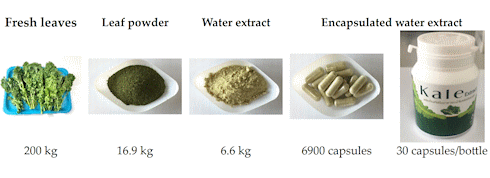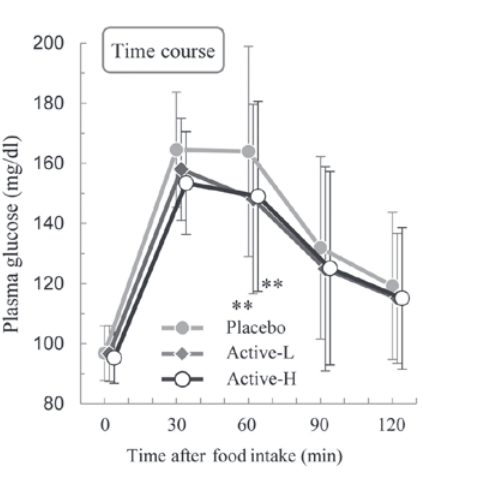|
Is kale a painkiller?
Kale may have an analgesic effect. We draw this conclusion, with several caveats, from a human but by no means perfect study that was published in Nutrients.

Study
Thai researchers from Chiang Mai University experimented with 20 young adults whose wisdom teeth had to be removed by dentists. For 7 days after the procedure, one half received 4 capsules with 400 milligrams of ibuprofen each day, while the other half received 4 capsules with 500 milligrams of kale every day during the same period.
The researchers used a water-based extract of kale. It mainly contained anthocyanins.
The research design was not perfect. For example, there was no control group that did not use anything at all. The study participants could also use paracetamol if they were in too much pain. The research does not reveal how often the subjects in both cases felt the need for this. The statistics are also not entirely okidoki.
Anyway. Nothing to be done about it.
Results
On the first day after the wisdom teeth extraction, the subjects in the ibuprofen group had less pain than the subjects in the kale group, but in the following days the pain decreased equally in both groups. This decrease in pain was even slightly more convincing in the kale group.
Click on the figure below for a larger version.


Dosage
The subjects in the kale group used 2 grams of extract per day. In their publication, the researchers provide all the information about the production of extracts that you need to calculate how much fresh kale you need to relieve pain.
That amounts to 116 grams of kale per day.
Source:
Nutrients. 2024;16(22):3821.
More:
Vitamin D as a painkiller 03.02.2024
Significantly less pain after surgery due to vitamin C supplementation 26.11.2023
Human study | This is the analgesic effect of kratom 18.07.2020
Palmitoylethanolamide, a natural painkiller with no side effects 03.11.2016
Ginger and turmeric are effective painkillers 06.08.2015
Being fit dulls pain 19.08.2014
Archives:
Brassica Vegetables
Pain
|






